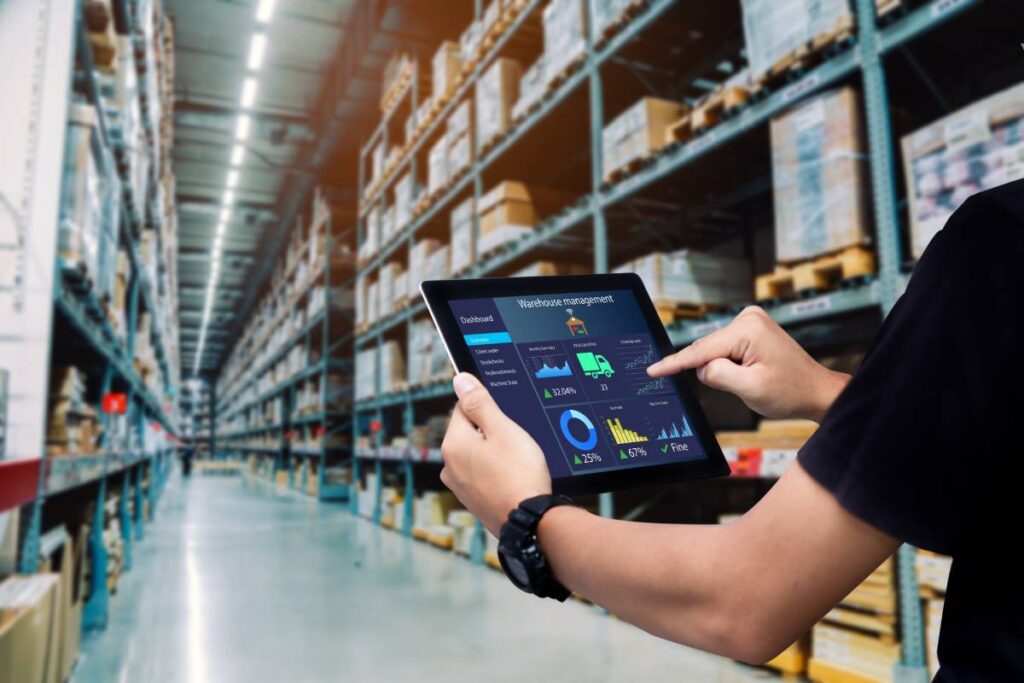The future of commerce is rapidly evolving, and at the forefront of this transformation is blockchain technology. With its ability to enable secure and transparent transactions, cryptocurrency technology leveraging blockchain is poised to disrupt legacy financial systems and facilitate mass adoption. This innovative technology not only enhances payment innovation but also has the potential to revolutionize the e-commerce industry.
In this document, we will delve into how blockchain technology is reshaping transactions, exploring its impact on finance and commerce at the World Web3 Conference, where tech enthusiasts and professionals in various cutting-edge fields converge to explore the latest advancements in AI, blockchain, crypto, metaverse, NFT utility, and web 3.0 technologies.
Introduction to Blockchain and Commerce
The Evolution of Transactions and Commerce
The evolution of transactions and commerce has been marked by continuous innovation aimed at enhancing security and efficiency. Historically, trade relied on physical currency and face-to-face interactions, but the digital age introduced electronic transactions that reshaped consumer habits. Blockchain technology represents the next significant leap. It maintains a decentralized ledger that is nearly impossible to tamper with, ensuring that each transaction is recorded transparently and securely.
This shift is significant for commerce, where trust and reliability are paramount. As blockchain becomes more prevalent, we can expect a reduction in fraudulent activities and lower transaction costs, which benefits both businesses and consumers.
The seamless integration of blockchain into current e-commerce platforms can also drive new customer experiences, fostering a climate where the ease of online shopping is matched by robust security measures.
Blockchain: A Revolutionary Technology
Blockchain is more than a technology; it’s a revolutionary approach to recording information and executing transactions. At its core, blockchain is a distributed database that allows multiple parties to hold identical copies of a ledger. This decentralization ensures that no single entity has control over the entire network, which significantly reduces the risk of centralized corruption or failure. Blockchain’s inherent characteristics—immutability, transparency, and security—make it a potent tool for reshaping industries beyond just finance.
Smart contracts, for instance, automate agreements without the need for intermediaries, streamlining processes in legal, real estate, and beyond. As organizations start to understand the potential of blockchain, we are witnessing its application in supply chain management, identity verification, and even in ensuring the integrity of voting systems.
Its capacity to provide a single source of truth has profound implications for commerce, setting the stage for a new era of transactional trust and efficiency.
How Blockchain Enables Secure, Transparent Transactions
Cryptocurrency Technology Leveraging Blockchain
Cryptocurrency technology takes advantage of the blockchain’s secure framework to execute monetary transactions with unparalleled transparency. Cryptocurrencies, like Bitcoin and Ethereum, are underpinned by this technology, ensuring that each transfer of value is verifiable by any party involved. The use of cryptographic techniques means that once a transaction is added to the blockchain, it cannot be altered or deleted, which is crucial for preventing fraud and maintaining trust between parties.
This security feature is what allows cryptocurrencies to operate without the need for a central authority, such as a bank, thereby reducing the costs and inefficiencies associated with traditional financial systems.
Moreover, blockchain’s transparency allows for a complete audit trail. Every transaction is visible to anyone who has access to the network, making it easier for users to track their funds and for regulators to monitor for suspicious activity.
Impact on E-commerce Industry
Blockchain technology is reshaping the e-commerce industry by enabling payment innovation and enhancing security. Traditional online payment systems, while convenient, come with several drawbacks, including vulnerability to fraud, high fees, and sometimes slow processing times. Blockchain overcomes these challenges by allowing for transactions that are not only secure but also nearly instantaneous and typically with lower fees. This technology empowers retailers to offer a more streamlined and cost-effective shopping experience to their customers.
Furthermore, smart contracts on blockchain facilitate automatic and conditional transactions, which can significantly improve the efficiency of supply chain operations and reduce disputes related to payments or contract terms. The ability to track products from the manufacturer to the consumer with blockchain ensures authenticity and combats counterfeit goods. This level of transparency and security is especially crucial for luxury brands and products with sensitive supply chains, such as pharmaceuticals. Blockchain’s impact extends to loyalty programs as well, where it can be used to create a more secure and user-friendly experience.

Disrupting Legacy Financial Systems: The Role of Blockchain
Facilitating Mass Adoption: A Gamechanger
Blockchain has the potential to facilitate mass adoption and disrupt legacy financial systems, acting as a gamechanger for how we perceive and engage with money. By eliminating the need for traditional intermediaries, such as banks and clearinghouses, blockchain paves the way for a more inclusive financial system. This is particularly transformative in regions where access to banking is limited. For example, cryptocurrency can offer financial services to the unbanked population, granting them the ability to save, invest, and transact on a global scale.
Moreover, blockchain’s potential for mass adoption is bolstered by its ability to provide more secure and private transactions. As public awareness of data privacy grows, the appeal of a system that offers greater control over personal information is significant. Additionally, the integration of blockchain into mainstream financial operations is being facilitated by advancements in regulatory frameworks and a growing ecosystem of blockchain-based applications.
This is not just a shift in technology, but a fundamental change in the way the world approaches financial transactions, potentially making finance more accessible, efficient, and equitable for all.
Blockchain’s Potential to Disrupt Financial Systems
Blockchain’s potential to disrupt financial systems lies in its foundational properties that challenge the status quo of traditional banking. By creating an immutable ledger of transactions, blockchain technology reduces the opportunity for fraud and errors. This is particularly disruptive in areas such as cross-border payments, where blockchain can significantly lower costs and increase the speed of transactions, bypassing the lengthy and expensive processes of current banking systems.
Financial institutions are recognizing the potential of blockchain to streamline operations and are exploring its use in areas such as settlement and clearing processes. The ability to settle trades almost instantaneously through blockchain could revolutionize the securities industry by minimizing counterparty risk and freeing up capital.
As blockchain technology continues to mature, its potential to transform financial systems becomes increasingly clear, signaling a move toward a more decentralized and democratic form of finance, which could reshape the global economy.
Blockchain in E-commerce: Innovations and Disruptions
Payment Innovation through Blockchain
Blockchain technology enables payment innovation in e-commerce, offering a level of efficiency and security that traditional payment systems struggle to match. With blockchain, transactions can bypass conventional financial gateways, cutting down on fees and reducing the time it takes for payments to clear. This can be particularly beneficial for small businesses or individuals who regularly face high transaction fees.
The introduction of cryptocurrencies as a payment method is an example of such innovation. They provide an alternative to fiat currencies, allowing for borderless transactions without the need for currency exchange. Furthermore, blockchain’s ability to tokenize assets means that e-commerce transactions can include a wider array of items, such as digital goods and services, creating a more diverse and dynamic online marketplace.
By implementing blockchain solutions, e-commerce platforms can not only enhance the customer experience but also gain a competitive edge in a market that values speed, security, and innovation.
Transforming the E-commerce Industry
Blockchain is set to transform the e-commerce industry by introducing a new layer of trust and efficiency. One of the most significant ways it does this is through the enhancement of supply chain transparency. By tracking the journey of products from manufacture to sale on an immutable ledger, blockchain provides a clear, unalterable record that can be accessed by buyers and sellers alike.
This level of transparency not only builds consumer trust but also helps businesses to effectively manage their inventory and reduce losses from counterfeit goods.
Additionally, blockchain facilitates better customer data management by giving users control over their personal information. This empowers consumers and can lead to higher levels of trust in online transactions. Blockchain also enables innovative loyalty programs, where tokens can be used across different platforms, increasing their utility and value for customers.
As blockchain technology continues to mature, its potential to upend current e-commerce practices and establish new standards is becoming increasingly apparent.
Exploring Future Trends: Blockchain and Beyond
Blockchain’s Potential in the Future of Commerce
Blockchain’s potential in the future of commerce extends far beyond its current applications. As the technology matures, it is set to underpin not just cryptocurrency systems but also a wide array of commercial activities. For instance, blockchain could revolutionize the way we approach contracts and legal agreements with smart contracts that automatically execute when conditions are met, eliminating the need for intermediaries and reducing the potential for dispute.
In retail, blockchain enables more than just secure transactions; it offers a means to create a more personalized and engaging customer experience. For example, with blockchain, a customer’s purchase history can be securely stored and used to tailor promotions and recommendations without compromising their privacy.
Additionally, the integration of blockchain with other emerging technologies such as the Internet of Things (IoT) and artificial intelligence (AI) could further enhance supply chain management, providing real-time tracking of goods and predictive modeling for inventory management. Blockchain’s versatility and capacity to add layers of security and efficiency make it a cornerstone for the future of commerce.
The Promise of Blockchain: Final Thoughts
The promise of blockchain extends far beyond the realms of cryptocurrency and finance. It’s a foundational technology that holds the potential to transform a myriad of sectors by infusing them with greater transparency, efficiency, and security. Looking ahead, blockchain could become the backbone of a new digital architecture, where every transaction, whether it’s in commerce, healthcare, or the arts, benefits from the trustworthiness that the technology provides.
As we consider the future, the promise of blockchain lies in its adaptability and resilience. Businesses and consumers alike stand to gain from its widespread adoption, as it promises to streamline operations, reduce costs, and provide a new level of security in digital dealings.
The full extent of blockchain’s impact remains to be seen, but what is clear is that its potential is vast, and it is arguably one of the most exciting developments in the digital age, poised to redefine the way we engage in commerce and beyond. Join us in our exploration of the potentials of the blockchain’s impact, and find out more!


